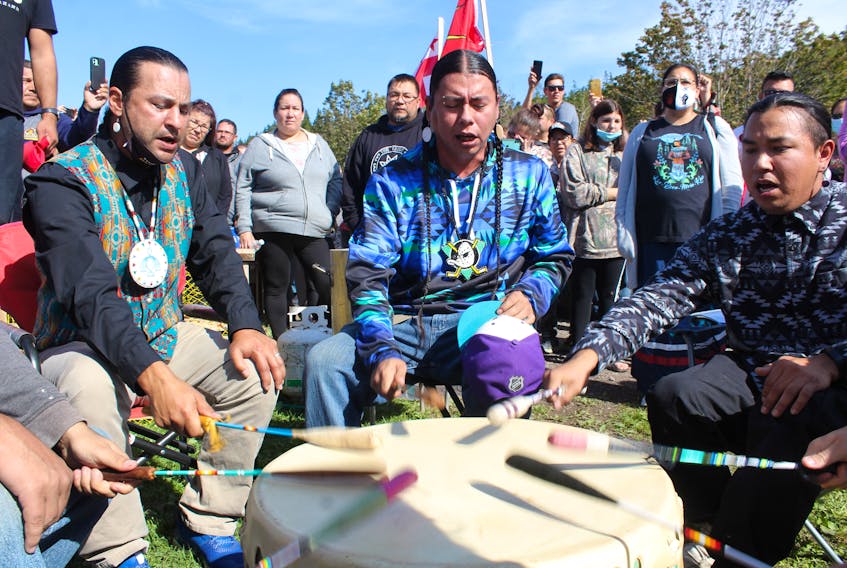ST. PETER'S, N.S. — Potlotek First Nation launched its moderate livelihood fishery to coincide with the Treaty Day celebrations on Thursday.
The Mi’kmaq community launched two boats with 235 lobster fishing tags. For Chief Wilbert Marshall, only fishers that could meet the boat safety standards and commercial fishing standards for traps were given tags.
“Safety is the big, number one factor. We want to make sure the boats are up to par and all their traps we’re up to code,” said Marshall.

The 52-year-old said the community could have launched at least a month ago, but the fishers wanted to hold back and launch to mark Treaty Day. Marshall says the moderate livelihood plan took 14 weeks to put together and was reviewed by lawyers. And it was important to have community input.
He’s hopeful the moderate livelihood fishery can help tackle some of the food insecurity issues his community has faced. And part of Thursday's launch was allowing fishers to catch and sell lobster without harassment.
“We kept getting harassed by DFO. DFO kept taking their traps away, DFO said come with a plan, so that’s what we did,” said Marshall, adding the plan included modern science.
Craig Doucette was one of the community members who helped put the plan together. The 36-year-old has been fishing for the last 10 years and wants to reassure people conservation was a big part of Potlotek’s plan. Netukulimk is the Mi'kmaq way of conservation and for Doucette, it’s about caring for the product you harvest.
He says sustainability, conservation and economics all went into their plan to fish for a moderate livelihood safely. And as Potlotek launched their moderate livelihood boats, the day was emotional.
“It means a lot to me personally because it's for the people and not just myself,” said Doucette.
“It's a good thing to bring back food to your community. If I’m healthy and able t do it, I’ll do it 'til I can’t anymore.”

He says the community always strives to bring back food to those who need it. Once a year, they have a moose harvest and divide the meat for community members. Potlotek has about 600 residents.
Doucette sees fishing as asserting treaty rights, so it was fitting the moderate livelihood plan was launched on Thursday.
“I’m just glad that we’re here and we’re moving forward, a lot of emotions and we wouldn’t have been able to do it without our community,” said Doucette.

Avery Basque was down on the wharf putting together the bait bags for the lobster traps. The 20-year-old started fishing just last year but was proud to take part.
“I feel like I’m a part of history,” said Basque.
“I hope that in the future if I have kids, they’ll be able to learn about this because it’s a big move.”

To avoid any conflicts with local commercial fishers, Chief Marshall met with the local commercial fishing union and explained his community's plan. Marshall wanted to avoid the same sort of conflict seen at the Saulinerville wharf when Sipekne’katik First Nation launched their own moderate livelihood fishery. Marshall said the union understood that they had to be good neighbours and would bring any grievances to the proper channels, and talk directly with DFO.
Marshall hoped more Canadians would take the time to understand the treaties. He also said their livelihood plan is a living document and will adjust to any new data. He hopes all the communities in Mi’kma’ki develop a moderate livelihood plan together because seeing his community's fishers' excitement was rewarding.
“That’s the best thing you can see, the smile in their faces,” said Marshall.









